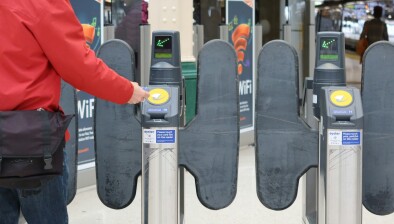Court of Appeal: Sentences increased for men who robbed Post Office at gunpoint
The Court of Appeal has increased the sentences of four men for armed robbery of a post office.

About this case:
- Citation:[2020] IECA 48
- Judgment:
- Court:Court of Appeal
- Judge:Mr Justice John A. Edwards
The Director of Public Prosecutions sought a review of each of the sentences imposed on grounds of undue leniency pursuant to s.2 of the Criminal Justice Act 1993.
Background
On 30 October 2018 Alan Wall, Barry Walsh, Conor O’Connor and Michael Tynan each entered guilty pleas before Waterford Circuit Criminal Court to one count of robbery contrary to s.14 of the Criminal Justice (Theft and Fraud Offences) Act 2001 and one count of possession of a firearm with intent to commit an indictable offence, contrary to s.27B of the Firearms Act 1964 as amended. They were sentenced on 8 February 2019.
All of the convicted men took part in armed robbery at Cleaboy Post Office, Waterford, on 3 May 2018. They travelled to the Post Office in a car driven by Mr Tynan. Mr Wall, Mr Walsh and Mr O’Connor then entered the Post Office, leaving Mr Tynan outside in the car as getaway driver. One of the men had a sawn-off shotgun and the other two had hammers. They were wearing balaclavas and latex gloves.
There were two cashiers and two customers present, one of whom had her two children with her, one aged 3 and the other a baby in a pram. The man wielding the sawn-off shotgun banged the gun off the glass partition at the counter. The Post Office workers behind the counter were threatened that they would be shot if they did not comply.
The raiders took €42,755.00, $950.00 and £1,200.00 as well as a quantity of stamps and Post Office stock.
The burned-out wreck of the getaway car was later found, and the four men were apprehended by gardaí. The Garda investigation and CCTV established significant pre-planning of the armed robbery, as the men scouted out the Post Office on previous occasions.
Sentences
Alan Wall and Michael Tynan each received a sentence of five years’ imprisonment with the last eighteen months suspended for the robbery offence, and a concurrent sentence of three years’ imprisonment for the firearms offence.
Barry Walsh and Conor O’Connor each received a sentence of six years’ imprisonment with the last twelve months thereof suspended on conditions three years post release (the said conditions including being subject to Probation Service supervision for two years post release) for the robbery offence, and a concurrent sentence of four years’ imprisonment for the firearms offence.
The DPP appealed to the Court of Appeal, arguing that the headline sentences actually determined upon were too light having regard to the gravity of the offending conduct. The DPP urged the court to consider a number of factors, including the violence used and threatened against those present in the Post Office, the level of planning and pre-meditation involved, and the fact that they acted as a gang.
She also argued that the court should have regard to the traumatic effect this robbery had on the victims, the fact that a firearm was used in the course of the robbery, and the impact on the wider community, given the fact that the robbery was at a Post Office at the centre of the local community.
The DPP referred to DPP v O’Sullivan and O’Rourke [2019] IECA 289, a severity appeal in a robbery, endangerment and possession of drugs case in which aggregate sentences of 12 years imprisonment with two suspended were upheld, and where the sentence structure had included a term of nine years for the robbery component, which had involved a Post Office and which, “although by no means are identical, bore many similarities to the present case”.
The Court noted that the same approach as now applies to the assessment of gravity in burglary and aggravated burglary cases should also apply to robbery cases. It referred to its decision in DPP v Casey and Casey, where it held that where a number of aggravating factors are present, this will place the offence in the middle range at least, and usually above the mid-point in that range. “The presence of a considerable number of these factors, or, if individual factors are present in a particularly grave form, will raise the offence to the highest category.”
Conclusion
The Court of Appeal found that all of the men were “parties to a common design and shared in the intrinsic moral culpability of the basic offending conduct”. The judges noted that there and concluded that the discounts afforded for mitigation were excessive.
The court first dealt with the robbery offence. The court increased Mr Wall’s sentence from five years’ imprisonment with the last eighteen months suspended to seven years’ imprisonment. Mr Walsh’s term was increased from six years’ imprisonment with the last twelve months suspended to seven-and-a-half years’ imprisonment. Mr O’Connor’s six years’ imprisonment with the last twelve months suspended was increased to eight years’ imprisonment. Mr Tynan’s five years’ imprisonment with the last eighteen months suspended was increased to seven years and three months’ imprisonment.
The court then went on to impose the presumptive mandatory minimum sentence of five years on all of them for the firearms offence to run concurrently with the sentence for the robbery offence.












